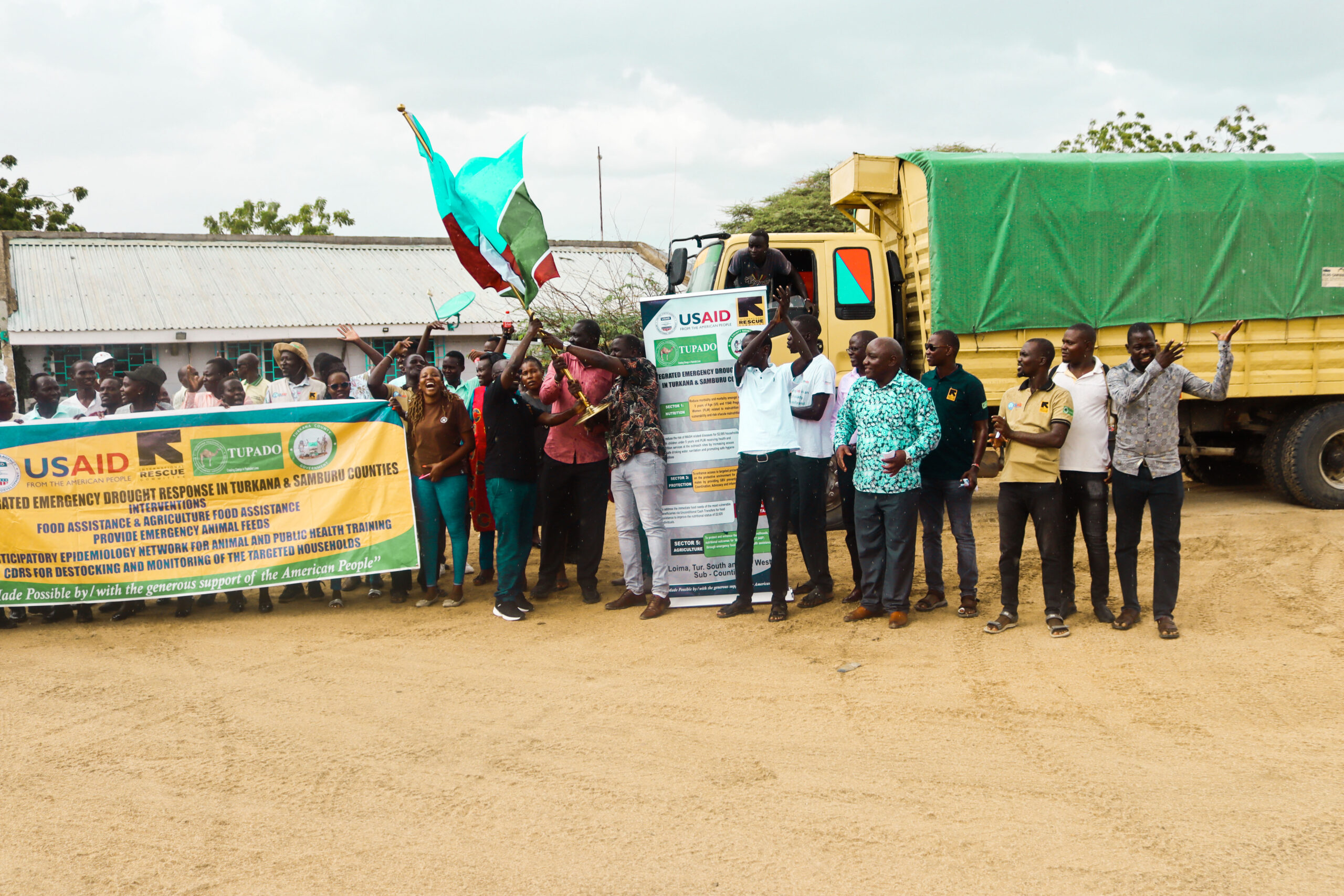Launch of Livestock Feeds Distribution Program under Integrated Emergency Drought Response in Turkana
In a proactive move to address the pressing challenges posed by recurring droughts, Turkana County’s Chief Officer of Livestock development , Dr. Ezekiel Etelech, was joined by key County and Partners officials, including Bobby Ewoi, Director of Livestock; Ernest Azenze, Deputy Director of Livestock Production; Emanuel Ewar, Principal Administrator; Josphat Lotwel, Deputy Director of the National Drought Management Authority (NDMA); Joshua Rutto, Field Manager IRC; and David Kangole, Head of Programs at Turkana Pastoralists Development Organization (TUPADO)reiterated by saying ,the three targeted sub counties will receive the first consignments but starting with the wards of Lobei kotaruk, Turkwel and Lokichar wards with 2845 50kgs of 6000 bags range cubes ; This illustrious group gathered to flag off a comprehensive livestock feeds distribution program, aptly named the “Integrated Emergency Drought Response in Turkana and Samburu Counties.” The Program is financed by United States Agency for International Development (USAID)-BHA and is being implemented by the lead partner, International Rescue Committee (IRC) and TUPADO. This program underscores Turkana County’s commitment to safeguarding the well-being of its residents and their valuable livestock assets. Dr. Etelej emphasized the importance of a coordinated response to the challenges posed by drought, highlighting that livestock play a critical role in the economic and social fabric of Turkana County. The integrated approach focuses not only on immediate relief but also on building resilience within communities, ensuring their ability to withstand future climatic shocks. The distribution program will provide essential livestock feeds to households in the targeted sub-counties—Loima, Turkana South, and Turkana West—helping to maintain the health and productivity of their herds. By addressing the nutritional needs of the livestock, the initiative aims to prevent the loss of valuable assets and enhance the overall resilience of the pastoralist communities. The launch ceremony, attended by community leaders, local authorities, and representatives from the implementing partners, celebrated the collaborative effort aimed at securing the well-being of Turkana County’s residents. Dr. Etelej expressed gratitude to USAID, IRC, and TUPADO, for their invaluable support and emphasized the need for sustained partnerships to tackle the complex challenges posed by climate change.
As the livestock feeds distribution program kicks off, Turkana County, with its team of dedicated officials and esteemed partners, stands at the forefront of innovative, community-driven solutions, setting an example for sustainable development in the face of climate-related emergencies.
The launch ceremony, attended by community leaders, local authorities, and representatives from the implementing partners, celebrated the collaborative effort aimed at securing the well-being of Turkana County’s residents. Dr. Etelej expressed gratitude to USAID, IRC, and TUPADO, for their invaluable support and emphasized the need for sustained partnerships to tackle the complex challenges posed by climate change.
As the livestock feeds distribution program kicks off, Turkana County, with its team of dedicated officials and esteemed partners, stands at the forefront of innovative, community-driven solutions, setting an example for sustainable development in the face of climate-related emergencies. 